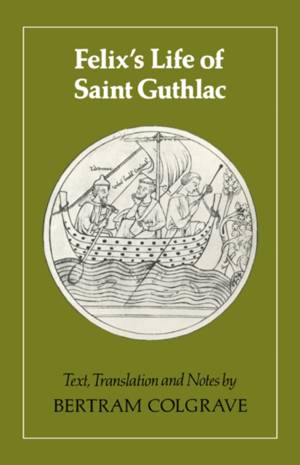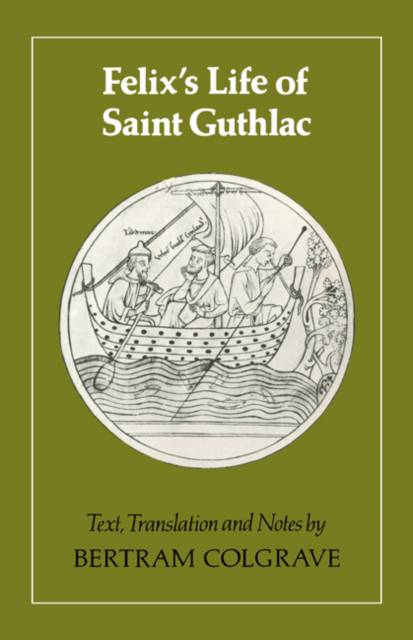
Bedankt voor het vertrouwen het afgelopen jaar! Om jou te bedanken bieden we GRATIS verzending (in België) aan op alles gedurende de hele maand januari.
- Afhalen na 1 uur in een winkel met voorraad
- In januari gratis thuislevering in België
- Ruim aanbod met 7 miljoen producten
Bedankt voor het vertrouwen het afgelopen jaar! Om jou te bedanken bieden we GRATIS verzending (in België) aan op alles gedurende de hele maand januari.
- Afhalen na 1 uur in een winkel met voorraad
- In januari gratis thuislevering in België
- Ruim aanbod met 7 miljoen producten
Zoeken
€ 76,45
+ 152 punten
Omschrijving
Written around 730-740 the Life of Guthlac by the monk Felix is an important and colourful source for the obscure early history of East Anglia and the Fens. It describes how the youthful Guthlac (674-714) won fame at the head of a Mercian warrior band fighting the British on the borders of Wales before entering the monastery at Repton at the age of twenty-four. Distinguished from the first by his piety and asceticism, Guthlac moved on around 700 to a solitary life on Crowland, an uninhabited island accessible only by boat deep in the wild and desolate marshland separating Mercia and East Anglia. Here he built a shelter cut into the side of a burial-mound in which he lived austerely, skin-clad in the manner of the Desert Fathers, for the rest of his life. Tormented by demons but consoled by visions of angels, Guthlac gained a reputation for sanctity and miraculous healing which spread far afield and continued to grow after his death. This Life vividly reflects the cult of St Guthlac as it existed in East Anglia only a generation later.
Specificaties
Betrokkenen
- Auteur(s):
- Uitgeverij:
Inhoud
- Aantal bladzijden:
- 224
- Taal:
- Engels
Eigenschappen
- Productcode (EAN):
- 9780521313865
- Verschijningsdatum:
- 12/09/1985
- Uitvoering:
- Paperback
- Formaat:
- Trade paperback (VS)
- Afmetingen:
- 140 mm x 216 mm
- Gewicht:
- 290 g

Alleen bij Standaard Boekhandel
+ 152 punten op je klantenkaart van Standaard Boekhandel
Beoordelingen
We publiceren alleen reviews die voldoen aan de voorwaarden voor reviews. Bekijk onze voorwaarden voor reviews.









